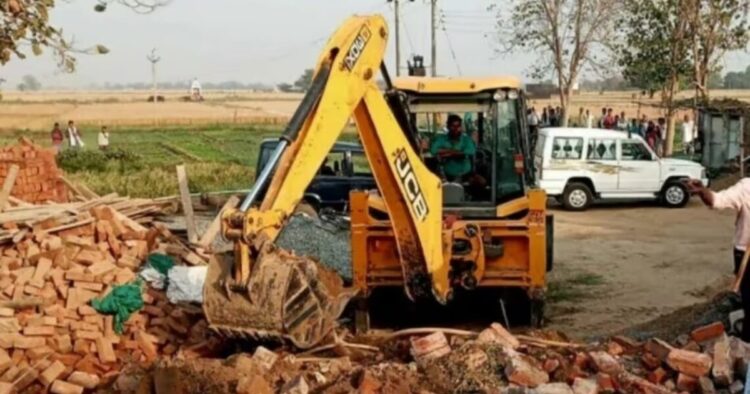The Supreme Court has issued guidelines regarding the bulldozer action going on across the country. The bench headed by Justice BR Gavai said that if the house of an accused or convict is demolished without following the due process of law, then his family will be entitled to compensation.
Action will be taken against the officers working arbitrarily or illegally. The Supreme Court said that the executive cannot become a judge and take a decision to demolish the property of an accused and the job of doing justice is of the judiciary. The executive cannot replace the judiciary.
The court said that “One’s home is his hopes, everyone dreams that his shelter should never be taken away and everyone dreams that he has a shelter’. It further said that the question before us is whether the executive can take away the shelter of a person who is accused of a crime. The court said that after hearing all the parties in this matter, we are issuing the order, for which we have also considered many previous decisions of the Supreme Court.
The court said that it is the responsibility of the state government to maintain law and order in the state and there should be rule of law in the state. The court said that we have paid attention to the separation of powers as well as how the executive and judicial class should work in their respective areas and we have considered the rights guaranteed under the Constitution that provide protection to individuals from arbitrary action of the state.
“The rule of law provides a framework to ensure that individuals know that their property will not be taken away arbitrarily. Whether the property of persons accused or convicted of committing a crime can be demolished without following due process of law. We have considered the issues of fairness in the criminal justice system and the case of the accused cannot be prejudiced”, said the court.
The court said that the rule of law is the foundation of democratic government. This issue is related to fairness in the criminal justice system, which ensures that the crime of the accused in the legal process should not be pre-assessed that he is a criminal. The court had reserved its decision on this matter on October 1.
During the hearing, the court had said that we are a secular country, we will issue guidelines for all citizens. The Supreme Court had said that anyone, Hindu or Muslim, can do illegal construction, our guidelines will be for everyone, irrespective of their religion or community. The Supreme Court had said that whatever is there, be it a temple, mosque or dargah built by encroachment on public roads, water body or railway line land, it will have to go, because public order is paramount.















Comments